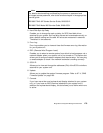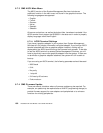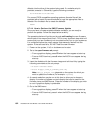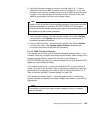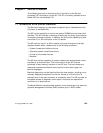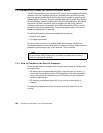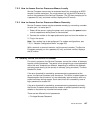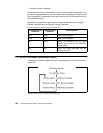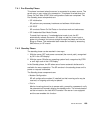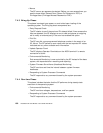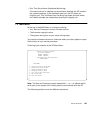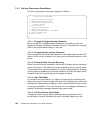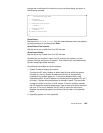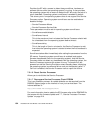
Service Processor 187
7.2.2 How to Access Service Processor Menus Locally
Service Processor menus may be accessed locally by connecting an ASCII
terminal to either serial port. You must press a key on the ASCII terminal to
confirm the presence of the Service Processor. The SP then prompts you for
a password (if set), and when verified, displays the SP menus.
7.2.3 How to Access Service Processor Menus Remotely
Service Processor menus may be accessed remotely by connecting a modem
to serial port 1 or serial port 2.
1. Power-off the server, unplug the power cord, and press the power button
to drain capacitance while power is disconnected.
2. Connect the modem to the appropriate serial port and turn the modem on.
3. Plug in the server.
Note: Your modem has to be configured. For modem configurations, see
7.5.5.1, “Modem Configuration Menu” on page 203.
With a terminal or terminal emulator, call the server's modem. The Service
Processor prompts you for a password (if set), and when verified, displays
the SP menus.
7.3 Security Within the Service Processor
For security purposes, the Service Processor counts the number of attempts
to enter correct passwords. The results of not recognizing a correct password
within this error threshold are different, depending on whether the attempts
are being made locally (at the server) or remotely (using a modem). The error
threshold is three.
If the error threshold is reached by someone entering passwords at the
server, the Service Processor exits the menus. This action is taken based on
the assumption that the server is in an adequately secure location with only
authorized users having access. Such users must still successfully enter a
login password to access AIX.
If the error threshold is reached by someone entering passwords remotely,
the Service Processor disconnects the modem to prevent potential security
attacks on the server by unauthorized remote users.
There are two different kind of passwords:
• Privileged Access Password



